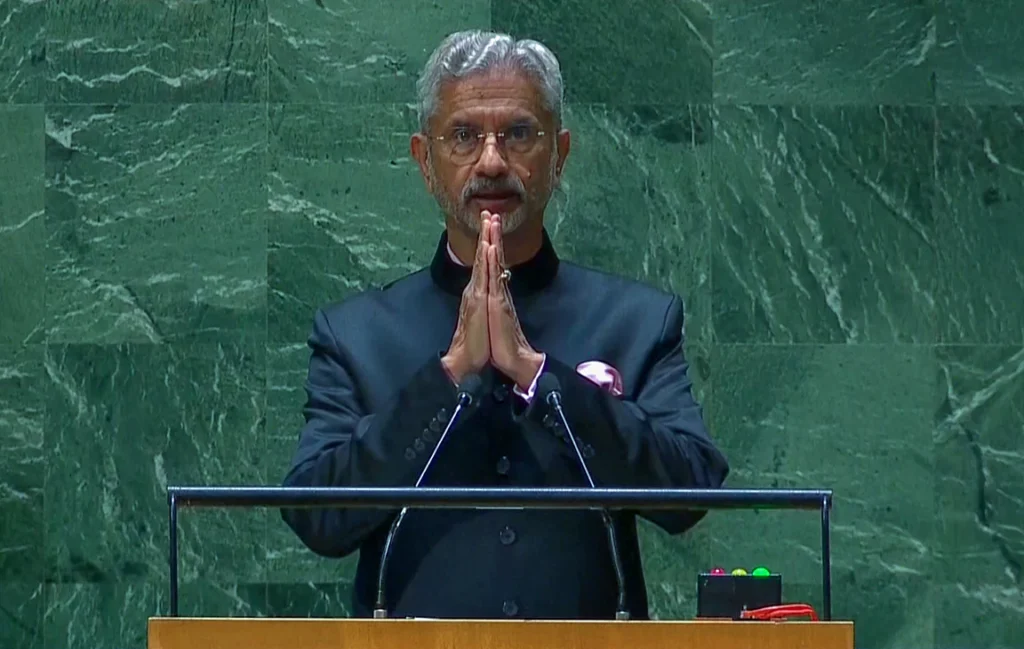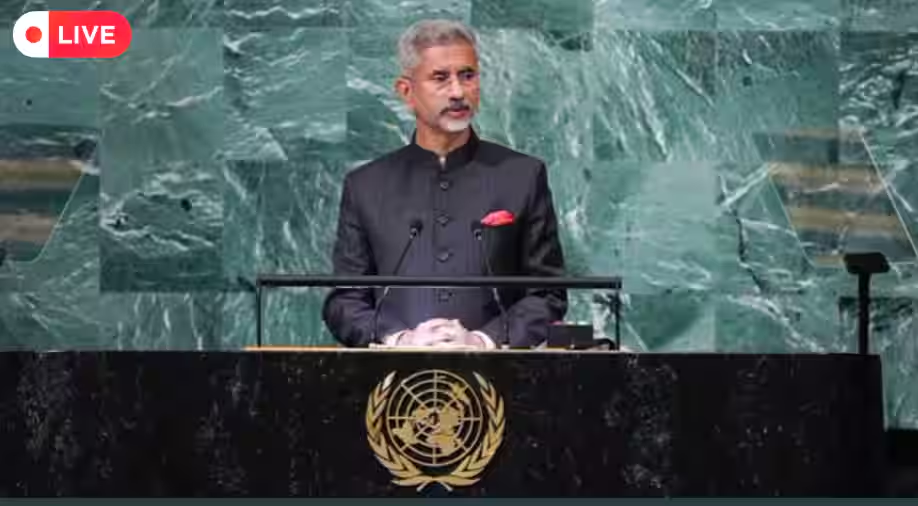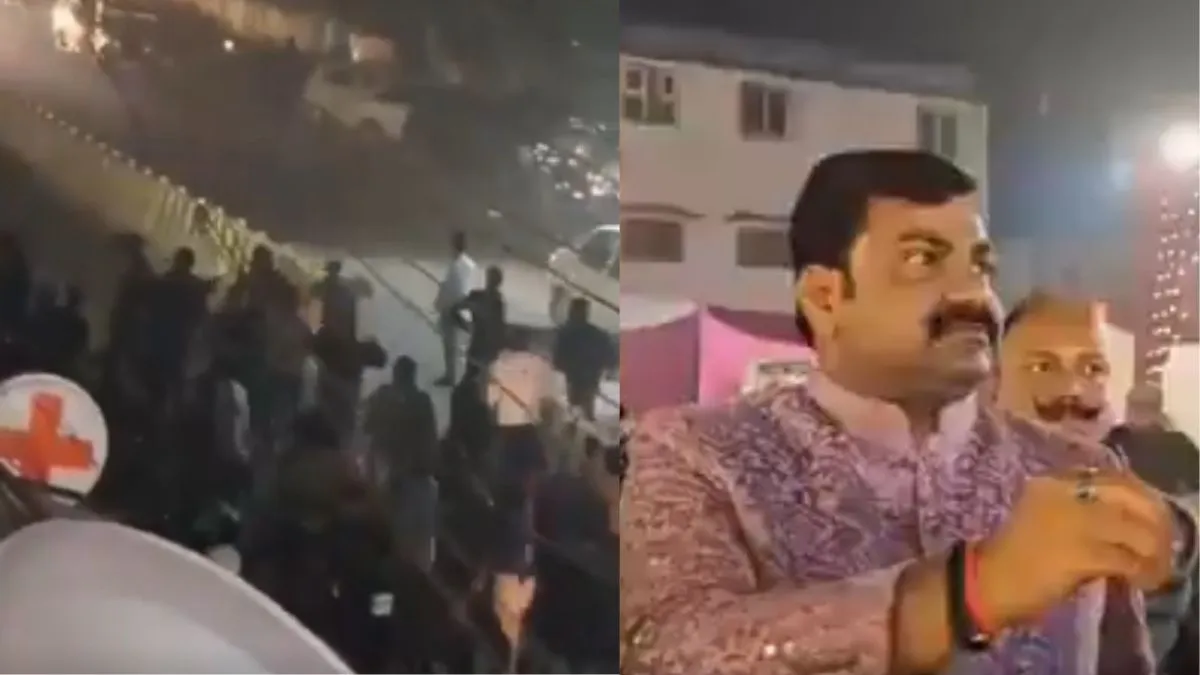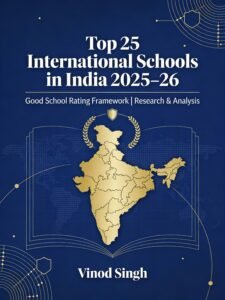Shehbaz Sharif’s UN Lies Exposed: India Destroys Pakistan’s Hollow Victory Claims After Operation Sindoor
India Exposes Shehbaz Sharif’s UN Lies: Operation Sindoor Echoes in New York
It was yet another stage, yet another script, and yet another performance from Pakistan. Prime Minister Shehbaz Sharif, speaking at the United Nations General Assembly (UNGA), attempted to paint Pakistan as a victorious and peace-loving nation. With dramatic flair, he claimed his country had downed seven Indian jets and “won the war” during the May 2025 confrontation. But the performance did not last long. Within hours, India’s most capable diplomats — led by External Affairs Minister S. Jaishankar and India’s UN envoy Petal Gahlot — dismantled the narrative, leaving Pakistan’s delegation cornered and speechless.
Pakistan’s Familiar Playbook: Lies and Denial
Shehbaz Sharif’s speech followed a well-worn pattern. For decades, Pakistan has tried to internationalise its disputes with India, leaning on exaggerated tales of victimhood while ignoring its own role in nurturing extremism. This year’s UNGA was no exception.
Shehbaz Sharif declared Pakistan’s military had achieved a “resounding victory” against India, citing the downing of seven aircraft and the resilience of its armed forces. Shehbaz Sharif spoke of peace, justice, and multilateralism — words that rang hollow given Islamabad’s track record of harbouring extremist groups, providing sanctuaries for terror masterminds, and weaponising radical ideology in the region.

But perhaps the most glaring gap in Shehbaz Sharif’s address was what he left unsaid: the devastating impact of India’s Operation Sindoor, which in May reduced key Pakistani military infrastructure to rubble. Runways were cratered, air bases crippled, and the illusion of military parity shattered. If such destruction constituted a “victory,” as Shehbaz Sharif boasted, observers wondered aloud what defeat might look like.
India’s Counterstrike at the UN
India’s reply was swift, sharp, and surgical — much like the precision strikes of Operation Sindoor itself.
UN diplomat Petal Gahlot, exercising India’s Right of Reply, dismissed Shehbaz Sharif’s claims as “absurd theatrics” and “a desperate attempt to hide Pakistan’s own failures.” She underscored that Pakistan’s only consistent export to the world has been terrorism, not peace. “If destroyed runways and collapsed bases are symbols of victory, then Pakistan has indeed achieved a historic win — over itself,” she said, in a biting takedown that resonated across the chamber.
External Affairs Minister S. Jaishankar, known for his calm but devastatingly precise diplomatic strikes, added weight to India’s rebuttal in a separate intervention. Without even naming Pakistan, he stressed that the international community must differentiate between “nations that build and nations that breed destruction.” The message was clear: Pakistan’s credibility has eroded to the point where its words invite ridicule rather than respect.
Operation Sindoor: The Unspoken Truth
Behind the UN theatrics lies the reality that haunts Islamabad — Operation Sindoor. In May 2025, India launched the operation in retaliation for cross-border terrorism. Within hours, Pakistani military installations were disabled. Satellite images and independent media reports confirmed widespread destruction.
The myth of invincibility — carefully cultivated by Pakistan’s military establishment — collapsed overnight. What weapons remained were exposed, degraded, or destroyed. What narratives survived had to be stitched together from half-truths and propaganda. And so, at the UN, all Sharif could wield was the final weapon left in Pakistan’s arsenal: lies.
The Broader Geopolitical Signal
India’s decision to respond firmly on the UN stage was not just about countering Pakistan’s rhetoric. It was also a signal to the world:
- To the West, India remains a responsible actor confronting terror, not an aggressor.
- To the Arab world, Pakistan’s self-proclaimed role as the “guardian of Muslim interests” is a hollow claim, increasingly rejected even within its traditional sphere of influence.
- To China, Pakistan’s closest ally, New Delhi is unafraid of geopolitical pressure and will call out Islamabad’s double games on international platforms.
Silence as Admission
Perhaps the most telling moment came after India’s rebuttal. The Pakistani delegation, usually quick to counter with another round of accusations, remained silent. There was no second act, no fiery comeback. For once, words failed Islamabad.
In diplomatic terms, silence often speaks louder than rhetoric. And in this case, Pakistan’s speechlessness was read as a tacit acknowledgement that its claims had been dismantled piece by piece.
Conclusion
The UNGA episode was not merely another exchange of barbs between two neighbours. It was emblematic of the shifting balance in South Asia. India, confident in its military strength and diplomatic credibility, stood tall on the world stage. Pakistan, stripped of real leverage after Operation Sindoor, resorted to the one tool it has perfected over decades — lying to survive.
But as Jaishankar’s words and Gahlot’s rebuttal made clear, the world is no longer buying the story. Lies may echo in the UN halls for a moment, but facts — and destroyed runways — endure.
India UNGA 2025, Pakistan lies UN, Jaishankar UN speech, Operation Sindoor, Pakistan false claims, India Pakistan UNGA, UN Right of Reply, Pakistan propaganda
Discover more from
Subscribe to get the latest posts sent to your email.










2 COMMENTS